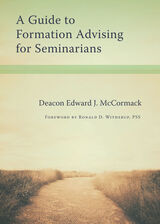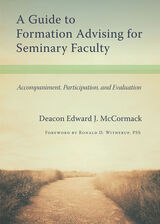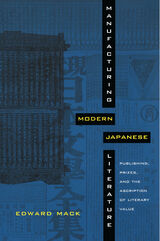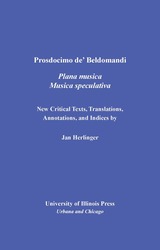3 books by Mack, Edward

A Guide to Formation Advising for Seminarians
Edward J. McCormack
Catholic University of America Press, 2020
The future of the Church depends, in part, on forming future priests and ministers who are ready to accompany, lead, and love the People of God. Formation advising is one important part of that work. A Guide to Formation Advising for Seminarians/Seminary Faculty offers a practical guide to formation advising as a ministry of accompaniment, participation, and evaluation. Deacon Edward McCormack offers a comprehensive introduction to the ministry of formation advising for seminarians studying for priestly ministry. These volumes are for men and women who are new to the ministry of formation advising. The recent Vatican guidelines for seminary formation call for professional accompaniment of seminarians throughout their formation. This book explains in concrete detail how to do this through the entire formation process.
Beginning with an overview of the formation process, A Guide to Formation Advising for Seminarians/Seminary Faculty explains the role of the formation advisor and the skills required for that ministry. It describes the various ways the formation advisor accompanies a person through the formation process. McCormack also provides concrete suggestions for how to promote in seminarians’ active participation in the process. Formators will also find explanation of the evaluation process with a style sheet and examples of written evaluations. The handbook contains an annotated bibliography on all the major topics a formation advisor comes across.
[more]

A Guide to Formation Advising for Seminary Faculty
Accompaniment, Participation, and Evaluation
Edward J. McCormack
Catholic University of America Press, 2020
The future of the Church depends, in part, on forming future priests and ministers who are ready to accompany, lead, and love the People of God. Formation advising is one important part of that work. A Guide to Formation Advising for Seminarians/Seminary Faculty offers a practical guide to formation advising as a ministry of accompaniment, participation, and evaluation. Deacon Edward McCormack offers a comprehensive introduction to the ministry of formation advising for seminarians studying for priestly ministry. These volumes are for men and women who are new to the ministry of formation advising. The recent Vatican guidelines for seminary formation call for professional accompaniment of seminarians throughout their formation. This book explains in concrete detail how to do this through the entire formation process.
Beginning with an overview of the formation process, A Guide to Formation Advising for Seminarians/Seminary Faculty explains the role of the formation advisor and the skills required for that ministry. It describes the various ways the formation advisor accompanies a person through the formation process. McCormack also provides concrete suggestions for how to promote in seminarians’ active participation in the process. Formators will also find explanation of the evaluation process with a style sheet and examples of written evaluations. The handbook contains an annotated bibliography on all the major topics a formation advisor comes across.
Beginning with an overview of the formation process, A Guide to Formation Advising for Seminarians/Seminary Faculty explains the role of the formation advisor and the skills required for that ministry. It describes the various ways the formation advisor accompanies a person through the formation process. McCormack also provides concrete suggestions for how to promote in seminarians’ active participation in the process. Formators will also find explanation of the evaluation process with a style sheet and examples of written evaluations. The handbook contains an annotated bibliography on all the major topics a formation advisor comes across.
[more]

Manufacturing Modern Japanese Literature
Publishing, Prizes, and the Ascription of Literary Value
Edward Mack
Duke University Press, 2010
Emphasizing how modes of book production, promotion, and consumption shape ideas of literary value, Edward Mack examines the role of Japan’s publishing industry in defining modern Japanese literature. In the late nineteenth century and early twentieth, as cultural and economic power consolidated in Tokyo, the city’s literary and publishing elites came to dominate the dissemination and preservation of Japanese literature. As Mack explains, they conferred cultural value on particular works by creating prizes and multivolume anthologies that signaled literary merit. One such anthology, the Complete Works of Contemporary Japanese Literature (published between 1926 and 1931), provided many readers with their first experience of selected texts designated as modern Japanese literature. The low price of one yen per volume allowed the series to reach hundreds of thousands of readers. An early prize for modern Japanese literature, the annual Akutagawa Prize, first awarded in 1935, became the country’s highest-profile literary award. Mack chronicles the history of book production and consumption in Japan, showing how advances in technology, the expansion of a market for literary commodities, and the development of an extensive reading community enabled phenomena such as the Complete Works of Contemporary Japanese Literature and the Akutagawa Prize to manufacture the very concept of modern Japanese literature.
[more]
READERS
Browse our collection.
PUBLISHERS
See BiblioVault's publisher services.
STUDENT SERVICES
Files for college accessibility offices.
UChicago Accessibility Resources
home | accessibility | search | about | contact us
BiblioVault ® 2001 - 2024
The University of Chicago Press









